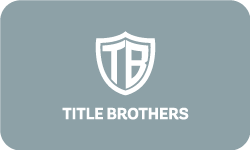Discover the insider secrets to streamlining your mortgage application process and securing your dream home faster than ever before.
Introduction to Managing Mortgage Applications
Navigating the mortgage application process can be daunting, but understanding the basics can make a world of difference. Whether you’re a first-time homebuyer or a seasoned real estate investor, having a grasp on how mortgages work and what to expect can significantly enhance your home-buying experience. In this section, we’ll break down why understanding mortgages is crucial and the pivotal role realtors play in this journey.
Why Understanding Mortgages is Important
A mortgage is essentially a loan taken out to buy a property. It allows you to purchase a home without paying the full price upfront, and instead, you repay the loan over time with interest. Grasping the fundamentals of mortgages is vital because it helps you gauge your affordability, choose the right loan, and understand the financial commitment you’re undertaking.
Role of Realtors in the Mortgage Process
Realtors are indispensable guides in the mortgage process. They assist clients in navigating the complexities of applying for a loan, from selecting the right mortgage type to preparing necessary documents and communicating with lenders. Their expertise ensures a smoother and less stressful experience, making them invaluable allies in your home-buying journey.
Steps in the Mortgage Application Process
To purchase a house, most buyers need a mortgage. Here, we simplify the mortgage application process into manageable steps to help you understand what to expect.
Step 1: Pre-Qualification
Pre-qualification is the initial step where a lender evaluates your financial situation to provide an estimate of how much you can borrow. It’s a preliminary assessment that gives you a ballpark figure of your borrowing capacity.
Step 2: Choosing the Right Mortgage
There are various mortgage types, such as fixed-rate and adjustable-rate mortgages. Choosing the right one depends on your financial situation and long-term plans. Think of it like selecting the perfect tool for a specific job.
Step 3: Submitting an Application
Once you’ve selected a mortgage type, you’ll need to submit an application. This involves providing detailed information about your financial history, employment, and the property you intend to buy.
Step 4: Underwriting
During underwriting, the lender meticulously reviews your application and financial details. This is akin to a thorough check-up to ensure everything is in order before they approve your loan.
Step 5: Closing the Deal
If your application passes underwriting, you’ll proceed to closing. This is the final step where you sign all necessary paperwork and officially take ownership of your new home.
Tips for Realtors to Guide Clients
For realtors, assisting clients through the mortgage application process is a vital aspect of their role. Here are some practical tips to help realtors provide exceptional service:
Building Trust with Clients
Trust is the cornerstone of any realtor-client relationship. By being transparent, responsive, and reliable, realtors can build a strong rapport with their clients. Clear communication and honesty are key to establishing trust and ensuring a smooth mortgage application process.
Explaining Complex Terms Simply
Clients often find mortgage terminology confusing. Realtors can help by breaking down complex terms into simple, understandable language. Educating clients about these terms empowers them to make informed decisions.
Staying Updated with Market Trends
Realtors should stay informed about current market trends and mortgage rates. This knowledge allows them to provide up-to-date advice and guidance, helping clients navigate the mortgage application process more effectively.
Effective Mortgage Management Strategies
Managing mortgage applications efficiently requires organization and proactive communication. Here are some strategies to streamline the process:
Organizing Financial Documents
Keeping all necessary financial documents organized is crucial. This includes pay stubs, tax returns, and bank statements. Having these documents readily accessible can speed up the application process and prevent delays.
Using Technology for Streamlining
Leveraging technology can make the mortgage application process more efficient. Online tools and apps can help you upload documents, track progress, and communicate with your lender or realtor. Embracing these technologies can simplify and expedite the process.
Regular Follow-Ups
Consistent communication is key to effective mortgage management. Regularly follow up with your lender and realtor to stay informed about the status of your application. This helps address any issues promptly and keeps the process moving forward smoothly.
Common Challenges in Mortgage Applications
Understanding common challenges in the mortgage application process can help you prepare and navigate them more effectively. Here are some typical issues and how to overcome them:
Credit Score Issues
Lenders heavily consider credit scores when evaluating mortgage applications. A low credit score can hinder your chances of securing a mortgage or result in higher interest rates. To improve your credit score, pay bills on time, reduce debt, and regularly check your credit report for errors.
Documentation Problems
Incomplete or incorrect documentation can delay or derail your mortgage application. Ensure all necessary documents, such as pay stubs, tax returns, and bank statements, are organized and accurate before submission.
Understanding Interest Rates
Interest rates significantly impact the overall cost of a mortgage. Understanding how they work and how they affect your monthly payments is crucial. Interest rates can fluctuate based on market conditions and individual factors like credit scores. Staying informed about these rates can help you make better mortgage decisions.
Conclusion
Navigating the mortgage application process requires attention to detail and effective communication. Understanding the steps involved and implementing practical strategies can streamline the process and enhance your home-buying experience.
Key Takeaways
Managing mortgage applications involves meticulous organization and clear communication between all parties. By following the outlined steps and tips for realtors, you can ensure a smoother process for yourself or your clients.
Remember to stay informed about market trends, build trust with clients, and simplify complex terms. Organizing financial documents, utilizing technology, and maintaining regular follow-ups are essential strategies for effective mortgage management.
By addressing common challenges such as credit score issues, documentation problems, and understanding interest rates, you can navigate obstacles and move closer to securing a mortgage for your dream home.
At Dr. Mortgage we are here to help you with your mortgage
Frequently Asked Questions (FAQs)
What is a mortgage?
A mortgage is a loan taken out to buy a home. You borrow money from a lender and repay it over time, usually with interest.
How do I apply for a mortgage?
Start by getting pre-qualified to see how much you can borrow. Then choose the right mortgage, submit an application, go through underwriting, and finally, close the deal by signing the necessary paperwork.
What documents do I need for a mortgage application?
You’ll need identification, proof of income (like pay stubs or tax returns), bank statements, and information about your debts. These documents help the lender verify your financial situation.
How can I improve my credit score?
Pay bills on time, keep credit card balances low, and avoid opening too many new accounts. Regularly check your credit report for errors and build a positive credit history.
Why is it important to understand interest rates?
Interest rates affect your monthly mortgage payments and the overall cost of your loan. Understanding them helps you make informed decisions and manage your mortgage more effectively.
Thinking long-term? Mortgages aren’t just about buying a house—they’re about building your future, securing stability, and investing in your dreams. 🚀Learn more here.








